Supreme Court

Hawley's accusation that Jackson is soft on crime reveals a troubling perspective on people who enact harm. Hawley is one of several Republican senators who sorts the world into two types of people: People who are evil and, if given the chance, will commit horrific, reprehensible crimes over and over again, and people like the rest of us, people who need to be protected from the evil people. According to this line of thinking, ensuring this protection shouldn’t rule out the harshest measures of isolation and punishment the state can enact. We separate “them” from “us” by forever marking them as dangerous.

Earlier this week, I attended the confirmation hearing of U.S. Supreme Court nominee Judge Ketanji Brown Jackson. Outside, spring in the nation’s capital was in full bloom, with cherry blossoms beginning to dot the landscape — signs of hope, growth, and new beginnings echoed in the liberative invitation of many faith traditions’ spring holidays, including Passover, Easter, and Holi. Inside at the hearing, the mood was equally hopeful: Jackson's nomination offers a new beginning — a new direction for the court and our country, and a hope for the future.

Given widespread efforts to erase or whitewash parts of U.S. history — as school board meetings across the country become battlegrounds over what and how the next generation will be taught that history — Black History Month serves as a corrective to ensure our understanding of history includes the good, the bad, and even the ugliest parts. While the history of Black people in the United States should be studied year-round, February — which every president since Gerald Ford has proclaimed as Black History Month — also presents a critical opportunity to celebrate the contributions of Black Americans proactively, honestly, and specifically.
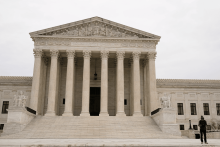
Conservative Supreme Court justices on Wednesday appeared ready to further expand public funding of religiously based entities, indicating sympathy toward a challenge by two Christian families to a Maine tuition assistance program that excludes private schools that promote religious beliefs.

As I observed and engaged in the multifaceted conversations about abortion, I came to a stark realization: In the story of the Annunciation, God reveals the importance of consent, agency, and women’s rights. This season of Advent presents us with the perfect opportunity to look at the Annunciation from this perspective.
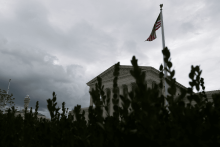
Supreme Court justices on Tuesday appeared divided over a bid by a man sentenced to death to have his pastor lay hands on him during his execution in Texas in a case testing how far states must go to accommodate religious requests by condemned inmates.
The justices heard more than 90 minutes of oral arguments in John Henry Ramirez’s appeal after Texas officials refused his request to let his Christian pastor touch him and audibly pray as he dies from the lethal injection and lower courts refused to issue a stay of execution.
The court, which has wrestled in recent years over the religious rights of death row inmates, has a 6-3 conservative majority. Some of the conservative justices raised questions about the sincerity of Ramirez’s religious request and how siding with him might affect future cases. The court’s liberal justices appeared to sympathize with Ramirez, who was not contesting his guilt in the appeal.

The FDA’s full approval in late August of the Pfizer-BioNTech vaccine, known commercially as Comirnaty, has led to a spate of government and corporate vaccine mandates for employees and patrons — as well as the inevitable backlash. Much of that backlash has been on religious grounds, with some Christians claiming exemption from the mandates using what journalist Mattathias Schwartz describes as the “rhetorical Swiss Army knife” of religious freedom.
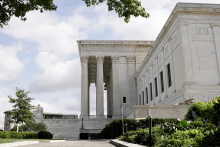
The Supreme Court’s new nine-month term, which begins on Monday, promises to be among the most momentous in generations. The justices are poised to decide major cases that could roll back abortion rights and broaden gun and religious rights.
Here is a look at some of cases the court will decide during the term, which runs through the end of next June.

A Reuters analysis of emergency applications over the past 12 months offers a glimpse into the full range of parties seeking urgent relief from the top U.S. judicial body through the shadow docket. The justices have increasingly relied upon this process to make rulings in a wide array of cases without the normal deliberative process involving public oral arguments and extensive written decisions.
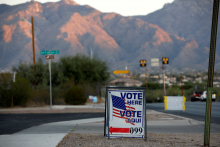
As many people in the United States prepared for the holiday weekend, the Supreme Court’s conservative 6-3 majority upheld two laws that restrict voting in Arizona. The first law the court upheld disenfranchises voters if they cast a ballot in the wrong precinct, invalidating not just their votes for local races, but also their entire ballot, including votes cast in U.S. presidential elections or Senate races, even though all eligible voters in Arizona can vote in those races regardless of the district where they live. The other law prohibits most people from delivering another voter’s absentee ballot to a polling place, making it a crime for anyone but a family member or caregiver to do so.
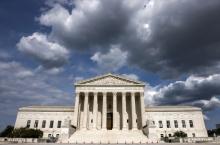
The Supreme Court ruled unanimously on Thursday that Philadelphia violated Catholic Social Services’ religious freedom by not placing children with the agency after CSS refused to place foster children with married same-sex couples.
“The refusal of Philadelphia to contract with CSS for the provision of foster care services unless CSS agrees to certify same-sex couples as foster parents violates the Free Exercise Clause of the First Amendment,” Chief Justice John Roberts wrote in a narrow decision.
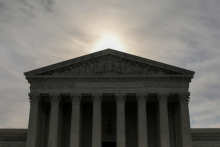
“The law guarantees Smith the right to practice his faith free from unnecessary interference, including at the moment the State puts him to death,” wrote Justice Elena Kagan.
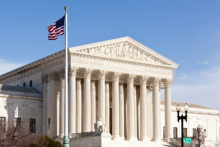
On Wednesday night, the U.S. Court of Appeals for the Eleventh Circuit reversed a district court’s decision and ruled that the state of Alabama must allow Willie B. Smith III’s pastor to be in the execution chamber during Smith’s execution.

WALKING THE EMPTY streets of Washington, D.C., my hat pulled down against the wind and my face obscured by a fabric mask, I can’t help but notice the unsightly trash on the sidewalk. Lately, the usual litter of the nation’s capital—gum wrappers, empty fast-food containers, unsigned legislation for the common good—now includes a new item carelessly dropped. The formerly ubiquitous cigarette butt has been replaced by the discarded flossing pick.
While it’s good that many people have stopped smoking, must they now floss and toss? Old cigarette butts might eventually compost into something useful to the earth. But plastic devices for cleaning teeth will be with us—much like a 6-3 Supreme Court—long after any possible use to society. And they’re disgusting to look at. (Floss picks, not the Supreme Court, although [name withheld] is looking well past his freshness date.)
My guess is that former smokers have switched to floss devices to keep alive the rituals they so loved. And who can blame them? It’s so satisfying to take a pick from a fresh pack, hold it just so between thumb and forefinger, and go to town on what’s left from lunch. Maybe there should be designated areas outside office buildings where flossers could gather during breaks, bonding while prying out that troublesome piece of bagel and complaining about the boss. All the while looking relaxed and worldly as they move from tooth to tooth, then casually tossing the pick to the ground, followed by stepping on it with practiced vigor. Unfortunately, there’s a lot of peer pressure to floss in public, but just because the cool people are doing it doesn’t mean you have to. Think of the children.
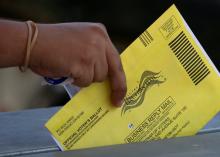
The Supreme Court on Wednesday dealt setbacks to Republicans by allowing extended deadlines for receiving mail-in ballots in next Tuesday's election in Pennsylvania and North Carolina, states pivotal to President Donald Trump's re-election chances.

President Donald Trump's Supreme Court nominee Amy Coney Barrett said on Tuesday at her U.S. Senate confirmation hearing she is not hostile to the Obamacare law, as Democrats have suggested, and declined to specify whether she believes landmark rulings legalizing abortion and gay marriage were properly decided.
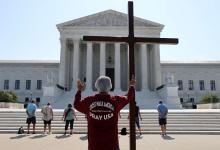
The Supreme Court recently issued a ruling that stripped the protections of anti-discrimination laws from thousands of teachers at religiously affiliated schools.
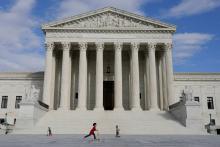
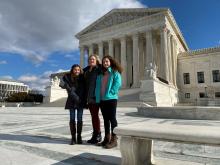
The U.S. Supreme Court narrowed the separation of church and state in a major ruling on Tuesday by endorsing Montana tax credits that helped pay for students to attend religious schools, a decision paving the way for more public funding of faith-based institutions.
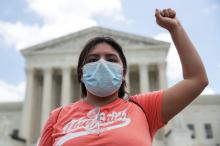
Even as we allow ourselves to savor this victory and be lifted by the hope of this moment, we also need to prepare and strategize for what’s next, because the fight for immigration justice is far from over. The justices of the Supreme Court did not rule on the merits of whether Trump is allowed to end DACA — but rather on the way in which he attempted to do so.